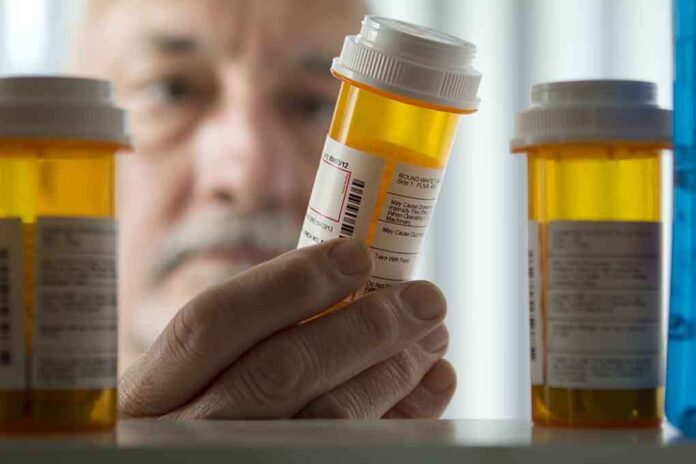
Big Pharma giant Teva has voluntarily recalled nearly 600,000 bottles of blood pressure medication after discovering cancer-causing chemicals that exceeded FDA safety limits, exposing thousands of Americans to potential long-term health risks.
Story Highlights
- Teva Pharmaceuticals recalled 581,000 bottles of prazosin hydrochloride capsules due to elevated nitrosamine impurities
- FDA classified the recall as Class II risk after discovering potential carcinogen levels above acceptable limits
- Affected medication treats high blood pressure, prostate conditions, and PTSD-related nightmares in veterans
- This represents the latest in a troubling pattern of contaminated generic drugs since 2018
Massive Recall Affects Critical Medications
Teva Pharmaceuticals issued a voluntary recall on October 7, 2025, removing nearly 581,000 bottles of prazosin hydrochloride capsules from circulation. The recall affects medications distributed by Amerisource Health Services across the United States. The FDA discovered elevated levels of N-nitroso prazosin impurity, a nitrosamine compound classified as a potential carcinogen, exceeding acceptable safety thresholds established by federal regulators.
Prazosin hydrochloride serves multiple critical functions as an alpha-blocker medication. Beyond treating hypertension and benign prostatic hyperplasia, healthcare providers frequently prescribe it off-label for PTSD-related nightmares, making veterans and older adults particularly vulnerable populations. The FDA classified this recall as Class II on October 24, 2025, indicating potential adverse health consequences that are likely temporary or reversible, though serious outcomes remain possible.
Recurring Pattern of Generic Drug Contamination
This recall continues a troubling seven-year pattern of nitrosamine contamination plaguing generic medications. Since 2018, the FDA has discovered unacceptable levels of carcinogenic impurities in multiple drug classes, including angiotensin II receptor blockers like valsartan and losartan, diabetes medication metformin, and heartburn treatment ranitidine. These contaminants typically form during manufacturing processes or result from improper storage conditions, raising serious questions about quality control standards.
The recurring contamination issues highlight systemic problems within the generic drug manufacturing industry. Between 2018 and 2020, multiple blood pressure medications required recalls due to NDMA contamination. The FDA intensified scrutiny and implemented stricter manufacturing guidelines from 2021 to 2023, yet new cases continue emerging. This pattern suggests inadequate oversight of pharmaceutical manufacturing processes that directly impact patient safety and public health.
Patient Safety Concerns Mount
Healthcare providers face increased workloads as they contact affected patients and manage alternative treatment protocols. No serious adverse events have been reported in connection with the contaminated medication as of late October 2025, but long-term cancer risks remain unknown. Patients taking prazosin hydrochloride for hypertension, prostate conditions, or PTSD symptoms must consult their healthcare providers immediately to discuss safe alternatives and potential health monitoring.
The recall exposes fundamental weaknesses in pharmaceutical quality control that threaten Americans’ health and safety. While Teva’s voluntary action demonstrates some corporate responsibility, the recurring nature of these contamination events reveals deeper systemic failures. Patients deserve medications manufactured to the highest safety standards, not products that expose them to cancer-causing chemicals due to inadequate quality control measures.
Sources:
Blood pressure medication recalled due to cancerous chemical
Blood pressure drug recall cancer prazosin hydrochloride FDA












